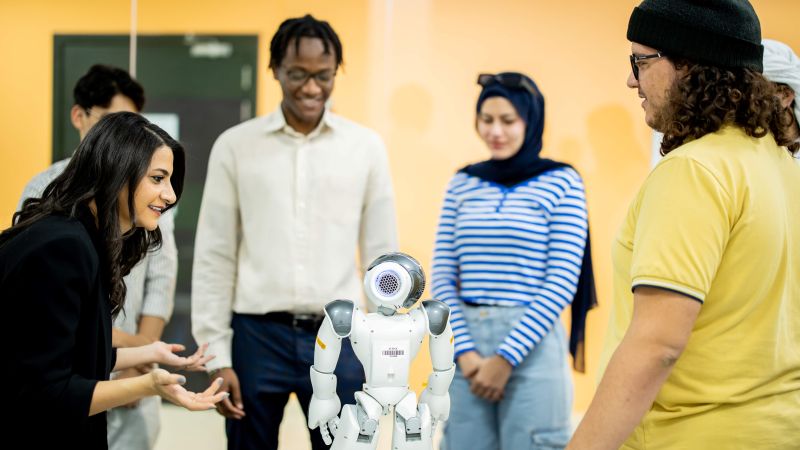The engineering profession is experiencing a strong resurgence in the UAE, fuelled by technological innovation and the country’s sustainability agenda, according to the American University of Ras Al Khaimah (AURAK). As traditional job roles are redefined by automation, AI, and digital transformation, engineering is emerging as a key career path for future-ready students.
The School of Engineering and Computing at AURAK says demand for engineers is on the rise, not only in legacy sectors such as construction and petroleum but also in cutting-edge fields like AI, robotics, and renewable energy.
“AURAK has always been proactive in bridging the gap between education and industry,” said Prof. Khalid Hussain, Interim Provost and Professor of Systems Engineering at AURAK. “We have revitalized our programs to meet the needs of a changing market, focusing on innovation and practical problem-solving.”
AURAK offers a range of ABET-accredited undergraduate degrees in disciplines including Computer, Chemical, Civil, Mechanical, Electrical and Electronics Engineering, as well as Architecture, Computer Science and Artificial Intelligence. These programs are tailored to equip students with both the theoretical foundation and hands-on skills needed in an increasingly interdisciplinary and tech-driven job market.
At the postgraduate level, the university offers specialized master’s degrees such as the Master of Science in Sustainable and Renewable Energy and the Master of Science in Engineering Project Management. These programs aim to produce professionals capable of leading complex projects, managing resources efficiently, and driving innovation in both industry and academia.
The university’s insights are supported by broader national trends. A 2018 study conducted by the UAE Ministry of Education identified engineering as the top choice among graduates, citing high employability and relevance to national development goals.
AURAK’s emphasis on interdisciplinary education aligns with wider industry demands for engineers who are not only technically competent but also capable of integrating AI, IoT, and data analytics into business operations. The shift from traditional engineering roles to hybrid positions is accelerating, driven by the Fourth Industrial Revolution and the UAE’s long-term vision for sustainable development.
According to AURAK, companies across the UAE are facing a shortage of qualified engineers, particularly those skilled in emerging technologies. This gap is creating significant career opportunities for graduates who are adaptable and committed to lifelong learning.
“Engineering today is more than just building bridges or machines,” added Prof. Hussain. “It’s about creative thinking, technological fluency, and sustainable innovation—skills we embed in every student at AURAK.”
As the UAE continues to invest in infrastructure, clean energy, and digital transformation, institutions like AURAK are playing a vital role in preparing the workforce of tomorrow. Engineering, once considered a traditional career path, is now at the forefront of the country’s future—an essential engine of innovation and progress.

